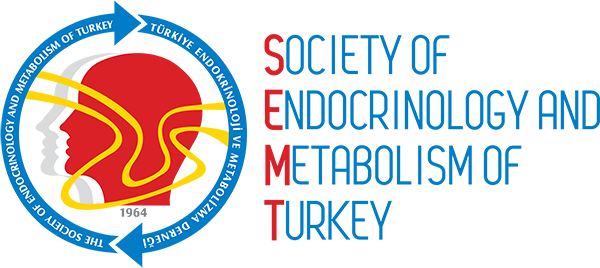Abstract
In the present study we evaluated the effects of iodine intake on the prevalence of thyroid dysfunction, autoimmunity and goiter in two regions with different iodine status after two years of iodinisation in Turkey.
A total of 1733 adolescent subjects were enrolled into the study (993 from iodine sufficient area- Eastern Black Sea Region (group 1), 740 from iodine deficient area- Middle Anatolia (group 2). We measured free thyroxine (FT4), thyrotropin (TSH), antithyroid peroxidase antibodies (Anti-TPO), antithyroglobulin antibodies (Anti-Tg), and urinary iodine (UI), and examined the thyroid gland by ultrasound. Median urinary iodine excretion was found to be significantly different in group 1 and group 2 (139 μg/l vs. 61 μg/l, p<0.001). Hyperthyroidism was more frequent in group 1 (3.6% vs 0.7%; p<0.001), but hypothyroidism rate was similar between groups (1.8% vs 1.4 %; p>0.05). The percentage of anti-Tg positive subjects was found to be 17.6% in group 1 and 6.4% in group 2, and that of anti-TPO positive subjects was 4.3% in group 1 and 1.5% in group 2. The prevalence of antithyroid antibody (anti-Tg and/or anti-TPO) positivity was significantly higher in group 1 than in group 2 (18.52% vs 6.62%; p<0.001). Thyroid volumes of the hyperthyroid subjects in both groups were significantly higher than hypo and euthyroid subjects. In conclusion, iodine supplementation in Turkey has resulted in the elimination of iodine deficiency in Eastern Black Sea Region, and this has been accompanied by an increase in the prevalence of autoimmune thyroiditis and thyroid dysfunction.



.png)
.png)